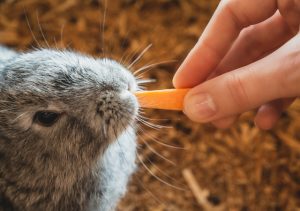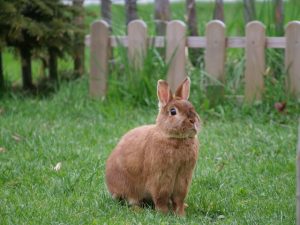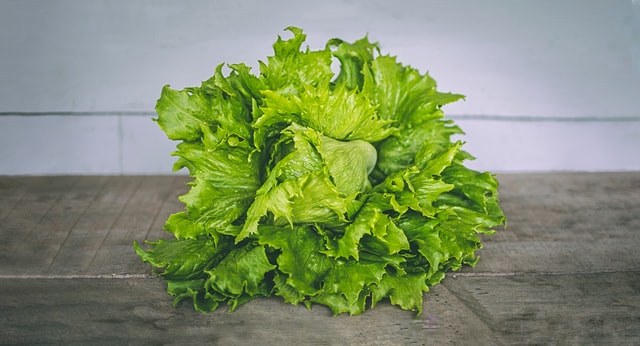
Rabbits are herbivores, this means they eat plants. However, not all plants can be eaten by rabbits. Plus, watching Bugs Bunny on television as a shield is deceiving. A rabbit is able to have carrots, but not in the amount seen in the kid’s cartoon.
Contents
Carrots, along with many other vegetables and green leafy plants are items that can be fed to a rabbit, in small amounts and as a treat once or twice a week. Green leafy vegetables such as iceberg lettuce, Romaine, Kale and many other forms of lettuce can also be given. The amount is the question that must be focused on.
A Rabbit’s Diet
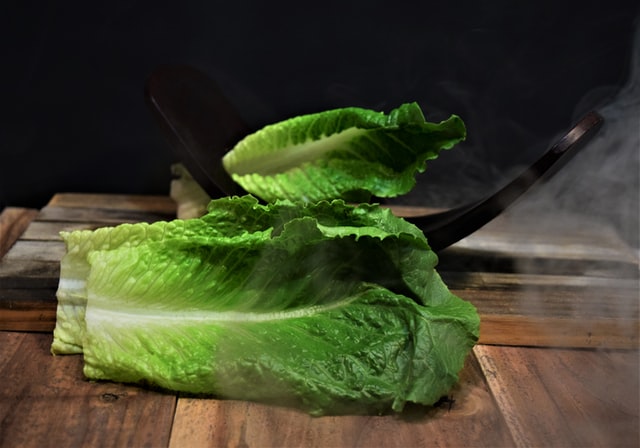
Diet does not mean that your rabbit needs to lose weight. Diet in this case are what foods and the amount acceptable. The actual diet recommendations include 80% of the total daily food should be good quality hay, such as Timothy hay, 10% should be leafy greens, 5% can be other acceptable vegetables and 5% should be nutritious supplemental pellets.
Your rabbit also needs clean water given to him or her throughout the day. The water should be changed and fresh throughout the entire day.
The greens should include 4 to 6 varieties of greens and weeds. Before beginning a new type of leafy green, this should be done slowly. It is wise to give small amounts of new items for one or two days and then you will be able to tell if there is an issue when it comes to that type.
For instance, broccoli is something that many rabbits love, however, broccoli can cause gas and bloating for the rabbit. The gas and bloating can lead to other serious health issues.
Safe Lettuce, Herbs and Vegetables
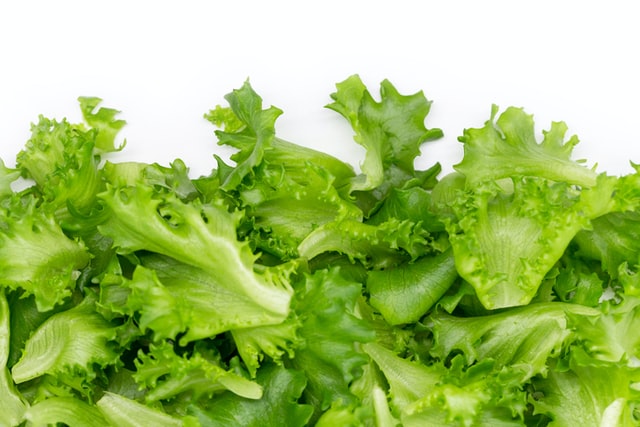
There are many safe types of lettuce for your rabbit to enjoy. The first thing to understand is that you must begin new types slowly to ensure that your rabbit and his or her digestive system can handle the lettuce or the vegetable.
Along with Romaine lettuce, some of the lettuces included on the safe list include:
- Curly Kale
- Kale
- Spinach
- Lettuce Greens
- Spring greens
Vegetables include some such as broccoli, celery, parsley, pepper, sprouts and squash. Plus there are many others that your rabbit is able to eat, most in limited quantities. As far as how much, keep in mind that in the wild, most rabbits will not eat vegetables or fruits.
It is believed that rabbits have an instinct as to what foods are safe for them to eat in the wild and which are not. The rabbit is apparently a good food cop. Herbs would include items such as parsley, mint, thyme and coriander. Basil, dill and fennel are also considered good herbs for a rabbit to enjoy.
Myths
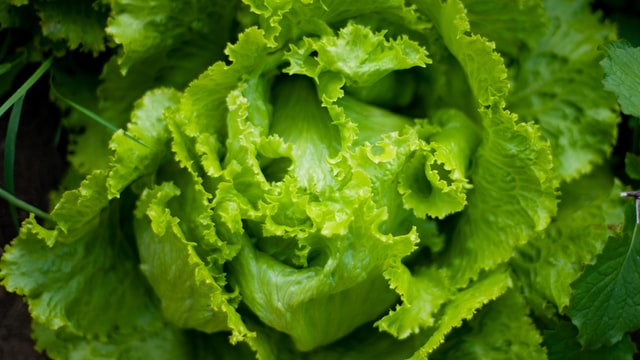
There are many myths when it comes to rabbits and food. It is baffling how many actually believe some. For instance, hay is not just for a rabbit's bedding. As stated, rabbit’s need 80% of their daily amount of food to be a good quality of hay.
The hay is needed to give the fiber, and to also help keep their teeth ‘filed’ down. If it was not for the hay, a rabbit’s teeth would grow uncontrolled which will cause dental issues and higher expenses.
Another myth is that a rabbit needs to have carrots and fruit. This is far from the truth. Vegetables and fruit should be considered a treat and given accordingly. The third is that Rabbits eat lettuce. This is true, they do eat lettuce.
However, lettuce should be nowhere near the amount of hay the rabbit eats daily. Myth four is that you should purchase all of the food for your rabbit at the store. Again, when a rabbit is in the wild, no one is shopping for them.
A rabbit has that natural instinct to eat foods found in the wild. Hay is a naturally grown food for the rabbit. Also, vegetables, when given, can be grown in your own garden, from a farmer’s market or the store. Be sure to wash all items thoroughly if you have purchased them. You do not want to have any chemicals or pesticides remaining on the items that you feed your rabbits.
Lettuce is Nutritional
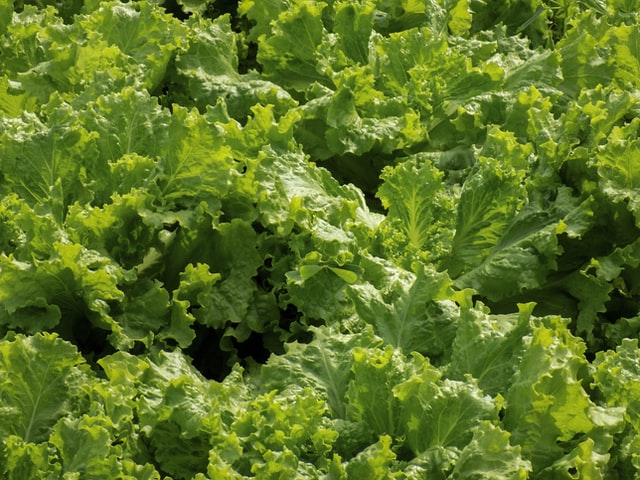
There are many types of lettuce acceptable for a rabbit’s diet. They all are nutritional and help keep the rabbit hydrated. Basing lettuce on the nutritional values, the best lettuces in order of nutrition are:
- Green or red leaf lettuce
- Romaine Lettuce
- Lamb’s lettuce
- Butterhead Lettuce (Bibb or Boston)
Lettuce does have an amount of calcium in it, this means that you cannot feed your rabbit too much lettuce or they will have too much calcium. Too much of any vitamin or mineral can actually be harmful to the rabbit. Lamb’s lettuce, along with the Butterhead lettuce have the fewest calories and nutrition. Lamb’s lettuce is not quite as healthy and nutritious as the leaf lettuce.
Romaine lettuce is not quite as healthy as the red and green leaf lettuce, but it is healthier for your rabbit than the Butterhead and Lamb’s. Again, lettuce is not meant to be a big portion of the daily amount of food. Only 10% should be given throughout the day. Romaine lettuce does have more water in it than the leaf types of red and green.
One helpful hint to remember is that the darker the leaf, the better it is for the rabbits. And another important thing to remember, when a rabbit is in the wild, they do have wild lettuce. However, wild lettuce is known to cause hallucinations for the rabbits who eat it.
Some professionals call it rabbit opioids. Never pick items from the woods unless you are certain you know what the items are. You would not want to cause health issues for your rabbit.
Health Benefits
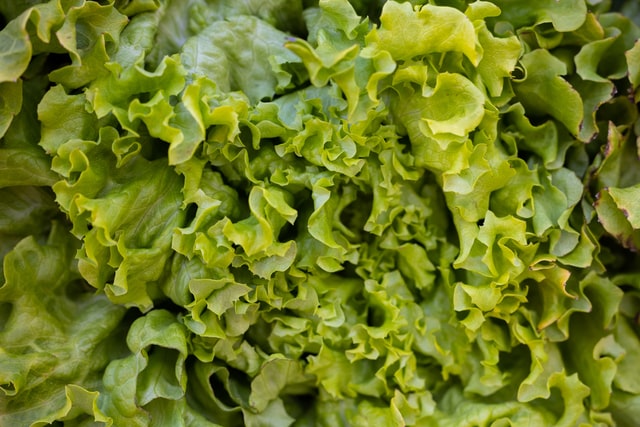
To be fully knowledgeable, the nutrition in lettuce includes Vitamins A and K. These vitamins help the rabbits organs function and also help keep the bones strong. Rabbits that tend to eat the lettuce with high water content will end up with loose stools and/or diarrhea.
So this needs to be watched closely. Iceberg lettuce should be avoided as far as feeding your rabbit. Iceberg lettuce contains far too much water content.
As for the popular Romaine lettuce, it is one of the healthiest varieties of lettuce that your rabbit is able to eat. You still need to watch for gas, bloating, digestive issues and many other health problems. If not monitored, your rabbit could possibly become extremely serious. Some effects can include GI stasis, minimal eating if at all, not drinking water, lethargy and the rabbit may appear to be in obvious pain.
When it comes to greens, no one would have believed that there would be controversy over feeding rabbits lettuce. Psychoactive lettuces have not been scientifically proven, scientific research has been done on the wild lettuce, but not with any store purchased lettuces. What is not contested is that the darker the leaves of lettuce, the healthier they will be for your furry friend.
Tips
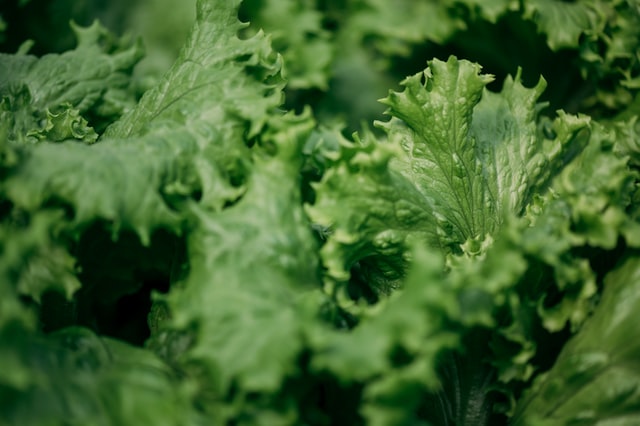
Some top tips that you should focus on is:
- Your rabbits weight, their food should be adjusted based on the weight
- Female rabbits that are pregnant or breastfeeding should have a normal diet in the beginning, then the veterinarian should be consulted to see if the diet should be altered.
- Any rabbit that is sick should follow a diet based on what the veterinarian states.
- If you are ever unsure or in doubt, leave the item out and speak to the veterinarian.
- No matter how much your rabbit enjoys certain items, be sure to stick with moderation. Stick to the recommended percentages for the foods. When you do this, your rabbit will be healthy and happy.
Choices
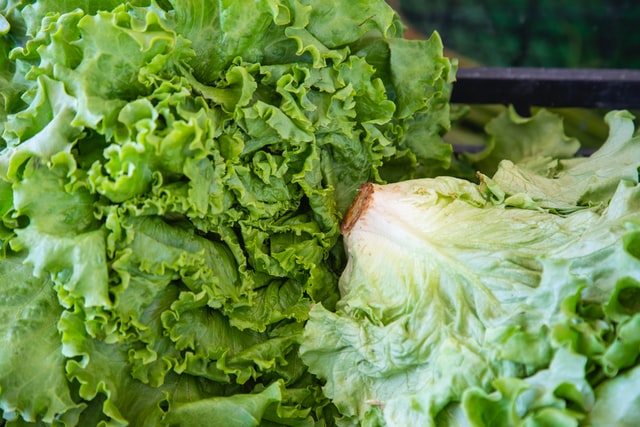
Rabbits are not necessarily finicky animals. They will attempt to eat almost everything put in the dish for them. This is why it is so important to remember to start slowly with new foods, a little bit each day for a day or two.
This would be enough time to see if there is something different about the way your rabbit acts. If the rabbit seems good and is not having any issues, then the food item is likely safe. However, still wait before introducing other items into the diet. This will allow the extra time so the food will make its way through the digestive system.
A wide variety of different options will benefit the rabbit in ways you could only imagine. Since so many foods have different nutrients and vitamins and minerals in them, it is best to be sure that you have a good variety of all the correct types of foods.
However, opinions vary on many topics for rabbits. It is always best to consult with some professional who is trained in rabbit care or extremely knowledgeable on the subject of rabbits. Your veterinarian should always be the first call you make if you have questions or issues when it comes to the health of your rabbit.


